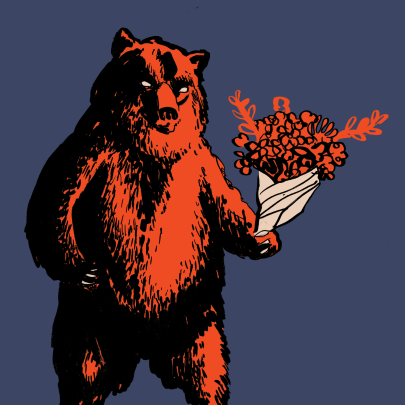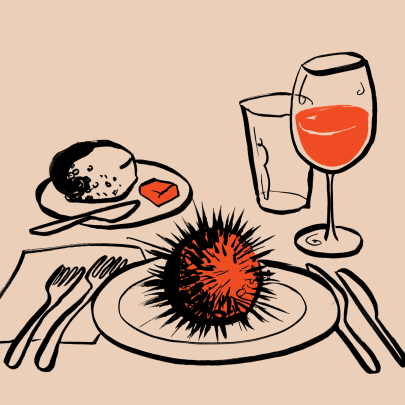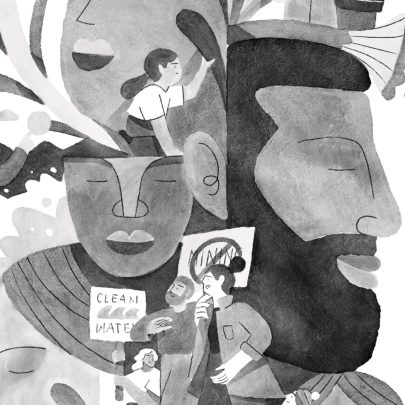Apr 29, 2023 City Life
The summer of 2023 felt like a repeat of the summer of 2021. We went into two Level 3 lockdowns that February — the only major festival that managed to go ahead in Auckland’s central city that year, as this season, was Beacon Festival, down at the waterfront.
The shock of starting the year with floods and a cyclone — lives in peril, livelihoods at risk — had me asking: what is plan B for enabling something as seemingly frivolous as nightlife to adapt to compounding uncertainty? Our city’s infrastructure is clearly not impervious to dramatic and sudden impacts, and, as many of us keep writing and saying, our cultural infrastructure is every bit as fragile. In February, the Basement Theatre had to suddenly pivot their programming due to a power outage — and that programme included an entire festival, the third attempt to stage the Festival of Live Art (F.O.L.A.), a wild and sexy array of artist-driven Art for Art’s and Artists’ Sake.
As the summer failed to emerge, Station Eleven was one of the many, many books I stayed home to read instead. Its depiction of a theatre troupe travelling through an apocalyptic landscape to a few remaining communities burned into my mind. The message is that artists are resilient and exist under any and all circumstances — though it’s difficult to see how one might DJ when the power grid has flooded. But the ideas of the book continued my ponderings: what conversations are clubs, venues, promoters and artists having about adaptation and what it looks like?
Some models already exist, like that followed by Splore, which has been banging the drum about how partying can be a part of the ecosystem. With its ‘leave no trace’ policy, cheap bus and carpool club, Splore demonstrates that insisting on sustainability (and basically providing good public transport) can work — and show people that environmental care and pinging hard really can go hand in hand. The Splore website states that, in 2023, they planned to “measure and offset Splore’s production based emissions”, an approach which helps to ensure the longevity of the festival itself.
But aside from ‘green’ festivals, how else might we innovate in order to keep our city nightlife alive? The question should also be an opportunity. As a friend cried one night outside Satya, over the noise of DJs inside going off, “Dancing has to be part of the revolution!”
The major Glasgow nightclub SWG3 in 2019 partnered with, of all things, a heat pump producer to form the start-up Bodyheat, which traps the literal body heat of dancers and uses it to power the club. Three years, a pandemic and half a million pounds of investment and funding later, the system was up and running, able to capture heat in one part of the club to be stored for later use or diverted to warm other rooms.
This is a forward-thinking, multi-organisational approach to future-proofing the culture. And as we know from the pandemic, being able to get amongst each other is an essential way to balance out the other total shit going on. It’s vital we protect our existing means of togetherness, but also that we iterate. Events might be your livelihood or they might, as for me, be an escape from constantly having to think about climate-related stuff in a day job, but the longer we separate nightlife from the climate around us, the more vulnerable both will become.
Lately I’ve felt out of sorts, lacking the desire to look forward to big nights. I have a constant sinking feeling that my best-laid plans are bound to be disrupted. It’s hard to get the energy up for dancing and talking shit all night when you’re just feeling shit. This malaise sees me falling back on my same-old comfortable drinking buddies and bars. With all the news, I’m tired of all that’s new.
When I heard about a friend’s show planned for the night of the Auckland floods that had to be rescheduled, it made me feel sad and demoralised for them. But it turned out to be a rager — people showed up on the new date even more determined to celebrate being there. I, of course, felt major FOMO on hearing this. I realised that letting my anxieties about the present and future become cynicism was actually a huge ‘fuck you’ to the scene, hobby, community that I care about. As Anne Helen Petersen wrote in her Culture Study newsletter in February, the things we love the most are easy to put aside in a time of crisis because we alone have agency over letting them go, but “We cannot mistake the ease with which they can be put down with disposability”.
Perhaps the biggest, most important adaptation strategy we have is our own participation. Auckland doesn’t make it easy — I’m always the first to admit this. It can look too young, too far away from home, too hype-y to last, but joining in can only make it better. Just ask anyone at Lady Shaka’s DJ night where her family showed up waving fans with her name on them. The team behind F.O.L.A. were able to hustle through a third year of disruption and cancellations because they’re a community first.
Perhaps the best solution is just taking part.
–






